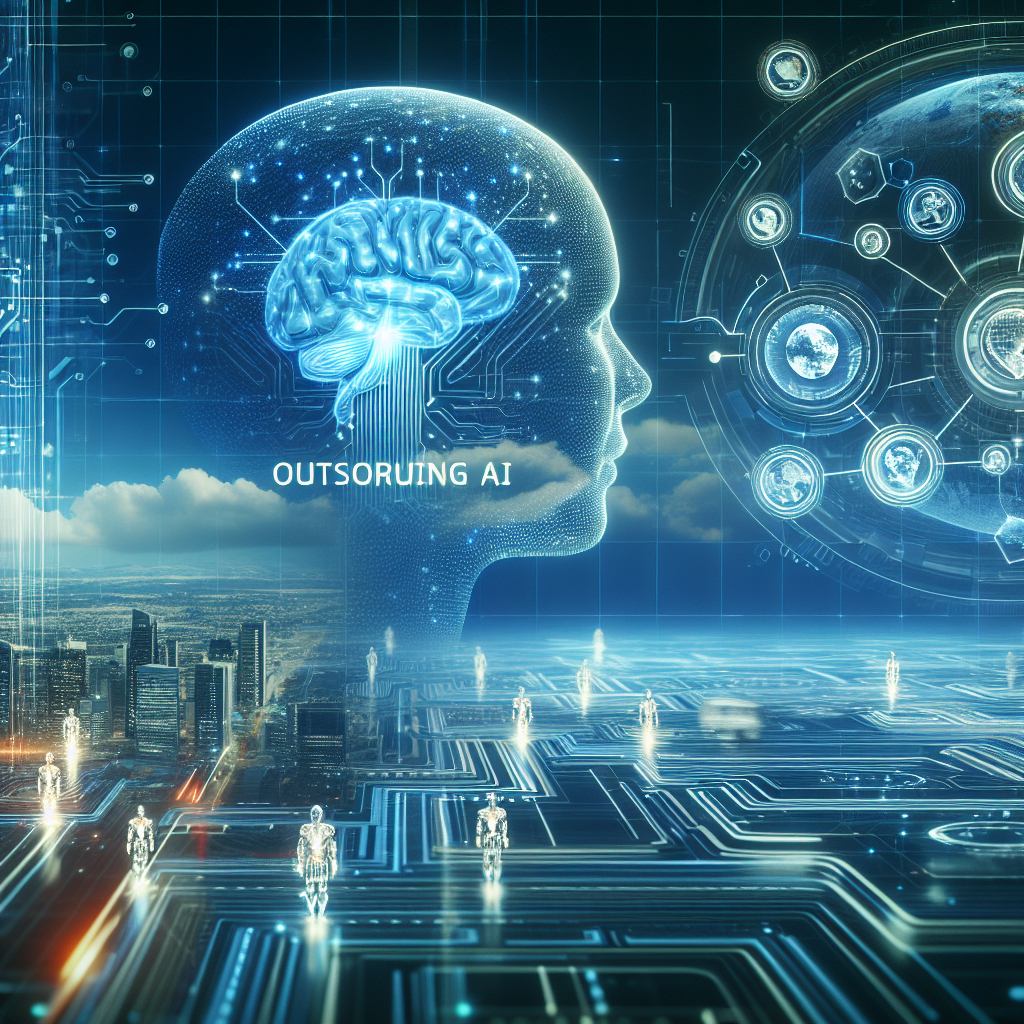Outsourcing AI: Trends to Watch in 2022
Artificial Intelligence (AI) has emerged as a transformative technology in recent years, revolutionizing industries such as healthcare, finance, and manufacturing. As organizations continue to adopt AI to drive innovation and improve efficiency, outsourcing AI services has become a popular choice to access specialized expertise and resources.
In 2022, we can expect to see several key trends shaping the outsourcing AI landscape. From advancements in AI technology to changes in outsourcing models, here are the trends to watch in the coming year:
1. Increased Adoption of AI-as-a-Service
One of the major trends in outsourcing AI is the rise of AI-as-a-Service (AIaaS) offerings. AIaaS allows organizations to access AI capabilities as a service, eliminating the need to build and maintain AI infrastructure in-house. This model offers scalability, flexibility, and cost-effectiveness, making it an attractive option for businesses looking to leverage AI technologies.
In 2022, we can expect to see an increase in AIaaS providers offering a wide range of AI services, including machine learning, natural language processing, and computer vision. These services will enable organizations to quickly deploy AI solutions without the need for extensive technical expertise, driving faster innovation and time-to-market.
2. Focus on Ethical AI
As AI technologies become more pervasive, there is a growing emphasis on ethical AI practices. Organizations are increasingly concerned about the ethical implications of AI, such as bias in algorithms, data privacy issues, and the impact on society. Outsourcing AI providers will need to prioritize ethical considerations in their AI solutions to build trust with their clients and end-users.
In 2022, we can expect to see a greater focus on ethical AI in outsourcing agreements, with organizations requiring vendors to adhere to strict ethical guidelines and standards. Outsourcing providers will need to invest in ethical AI training and tools to ensure that their AI solutions are developed and deployed responsibly.
3. Rise of Automated Machine Learning (AutoML)
Automated Machine Learning (AutoML) is a technology that automates the process of building and deploying machine learning models. AutoML platforms enable organizations to quickly build and deploy AI models without the need for extensive data science expertise, making AI more accessible to non-technical users.
In 2022, we can expect to see a rise in the adoption of AutoML platforms by outsourcing providers, as organizations seek to streamline the AI development process and reduce time-to-market. These platforms will enable organizations to accelerate their AI initiatives and drive innovation more effectively.
4. Emphasis on Data Security and Privacy
Data security and privacy are paramount concerns for organizations outsourcing AI services. With the increasing volume of data being processed by AI systems, organizations need to ensure that their data is secure and protected from cyber threats and unauthorized access.
In 2022, we can expect to see outsourcing providers investing in robust data security and privacy measures to protect their clients’ sensitive information. Providers will need to implement encryption, access controls, and other security measures to safeguard data throughout the AI lifecycle, from data ingestion to model deployment.
5. Hybrid AI Models
Hybrid AI models, which combine traditional rule-based systems with machine learning algorithms, are gaining traction in the outsourcing AI landscape. These models leverage the strengths of both approaches to deliver more accurate and reliable AI solutions, making them a popular choice for organizations looking to maximize the performance of their AI systems.
In 2022, we can expect to see an increase in the adoption of hybrid AI models by outsourcing providers, as organizations seek to improve the accuracy and efficiency of their AI solutions. These models will enable organizations to leverage the best of both worlds, combining the logic and reasoning of rule-based systems with the predictive power of machine learning algorithms.
FAQs
Q: What are the benefits of outsourcing AI services?
A: Outsourcing AI services offer several benefits, including access to specialized expertise, cost savings, scalability, and faster time-to-market. By outsourcing AI services, organizations can leverage the skills and resources of external providers to develop and deploy AI solutions more efficiently and effectively.
Q: How can organizations ensure the ethical use of AI in outsourcing agreements?
A: Organizations can ensure the ethical use of AI in outsourcing agreements by including strict ethical guidelines and standards in their contracts with outsourcing providers. These guidelines should cover areas such as bias in algorithms, data privacy, and transparency in AI decision-making. Organizations should also conduct regular audits and assessments to ensure that outsourcing providers are adhering to ethical AI practices.
Q: What are the key considerations for organizations when outsourcing AI services?
A: When outsourcing AI services, organizations should consider factors such as the expertise and experience of the outsourcing provider, the quality of their AI solutions, their data security and privacy measures, and their ethical AI practices. Organizations should also evaluate the scalability, flexibility, and cost-effectiveness of the outsourcing arrangement to ensure that it aligns with their business objectives and requirements.

